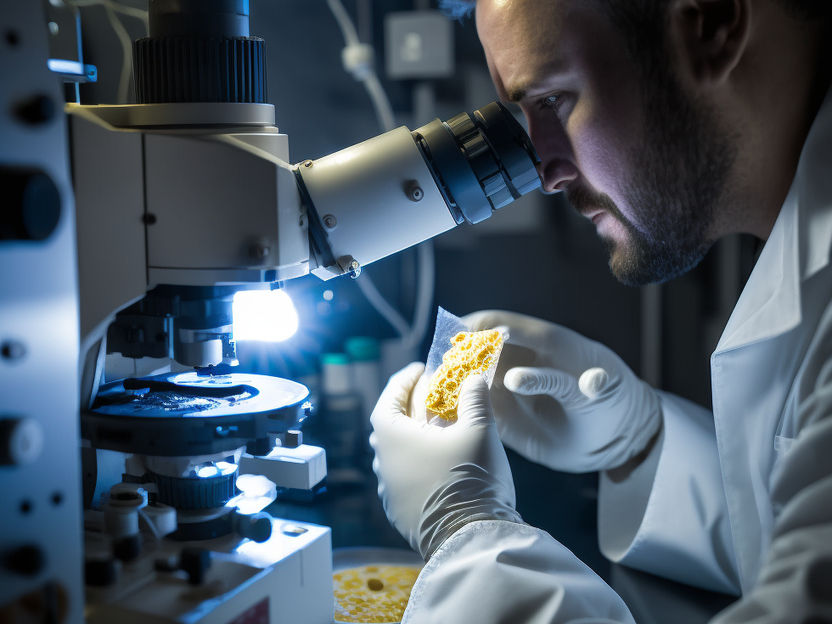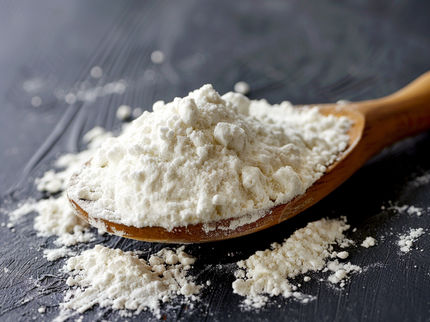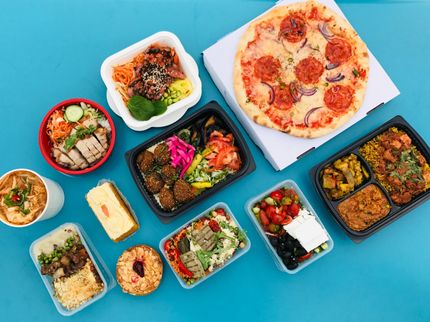Scientists find inorganic food additives might make babies more vulnerable to allergies
Las nanopartículas inorgánicas podrían atravesar la barrera placentaria y llegar a la leche materna
Advertisement
Nanotechnologies have revolutionized food technology with changes to food production, manufacture, and processing that are intended to make our food safer and healthier. Phytosanitary products, processing aids, food additives, and surfaces that touch food in storage can all transfer nanoparticles that might be consumed by humans. In a review published in Frontiers in Allergy today, Mohammad Issa, at the Université Paris-Saclay, and colleagues pointed out that such a significant change to food production could have unforeseen health consequences. The team presented evidence that suggested that nanoparticles not only cross the placenta to reach developing fetuses but leave them at greater risk of potentially life-threatening food allergies.

symbolic picture
computer generated picture
“Due to the immunotoxic and biocidal properties of nanoparticles, exposure may disrupt the host-intestinal microbiota’s beneficial exchanges and may interfere with intestinal barrier and gut-associated immune system development in fetus and neonate,” said Dr Karine Adel-Patient, corresponding author of the study. “This may be linked to the epidemic of immune-related disorders in children, such as food allergies – a major public health concern.”
Allergies on the rise
Food allergies occur when the immune system overreacts to proteins found in food. Children should usually develop oral tolerance, which allows them to eat without their bodies treating dietary proteins as a threat, but if the immune system or the intestinal barrier are compromised, they may instead become sensitized and develop an allergic reaction.
Food allergies affect between 2-5% of adults and 6-8% of children, and prevalence has risen sharply in recent decades. We know that environmental factors play a significant role in allergy development, and the higher prevalence in children suggests that early life environmental factors are likely key. Dietary practices and the environment affect gut health in young children, and the deprivation of gut microbiota and a wide range of dietary proteins can affect the development of oral tolerance.
Nanoparticles passed on
To understand how nanoparticles can disrupt this delicate balance, the team focused on three nanoparticle-bearing additives which are regularly found in food.
“Such agents can cross the placental barrier and then reach the developing fetus,” explained Adel-Patient. “Excretion in milk is also suggested, continuing to expose the neonate.”
While nanoparticles crossing the placenta has been demonstrated in rodents, there is also evidence that the additives cross the placenta in humans as well. Nanoparticles are not absorbed in the gut but accumulate there, and affect the bacteria present in the gut microbiome by changing the number of species present and their proportions. Given the evidence for the importance of the gut microbiome in developing a well-educated immune system, this is concerning for allergy development. Nanoparticles also affect the epithelium intestinal barrier, which is another essential component of a healthy reaction to dietary proteins.
Evidence for immunotoxicity is harder to gather, but the team pointed to evidence that the gut-associated lymphoid tissue in humans is also negatively affected by these nanoparticles. This suggests that the effect on the immune system is greater than currently understood, in line with evidence from rodent studies. However, these usually reflect a proportionally higher dose than the estimated consumption by humans.
“The impact of such exposure on the development of food allergy has not been assessed to date,” warned Adel-Patient. “Our review highlights the urgent need for researchers to assess the risk related to exposure to foodborne inorganic nanoparticles during a critical window of susceptibility and its impact on children health.”































































